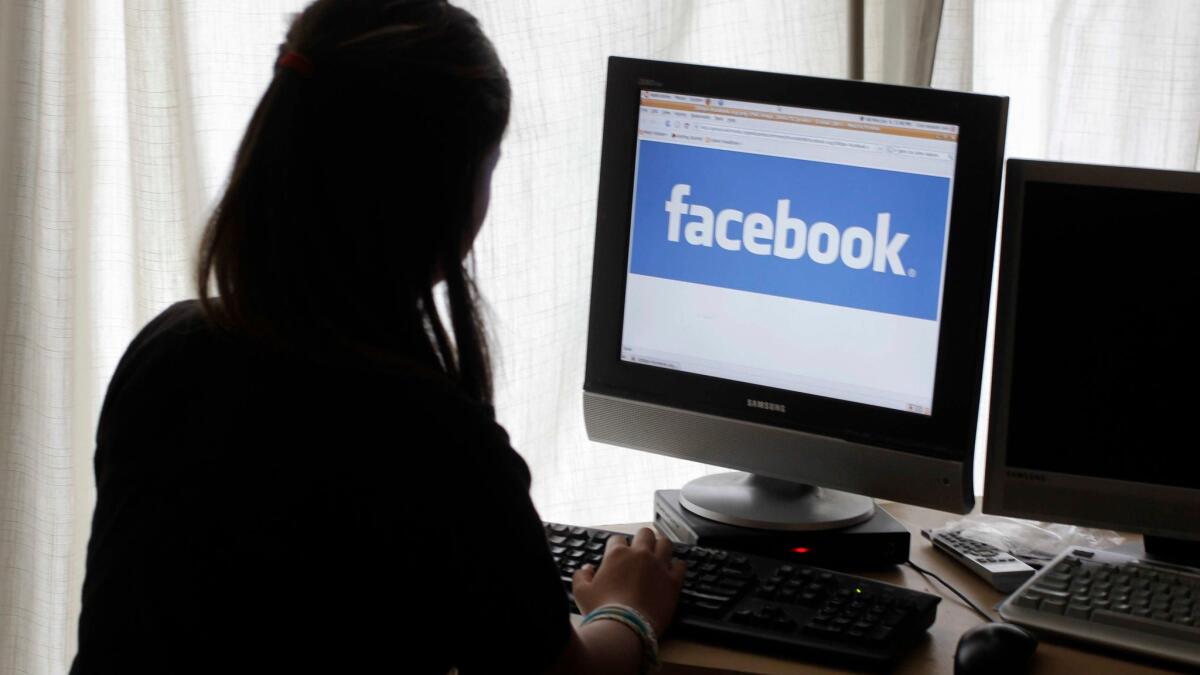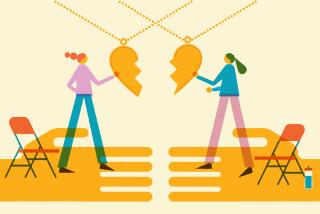Accepting more Facebook friend requests is linked to lower mortality, study says

Think online social networks have no bearing on your real life? Think again. Scientists who studied Facebook activity and mortality rates of registered California voters found that people who received many friend requests were far less likely to die over a two-year period than those who did not. Initiating friend requests, however, seemed to have no effect on death rates whatsoever.
The findings, published in the Proceedings of the National Academy of Sciences, hint at deeper complexities in the relationship between humans’ health and their social networks — whether those networks are online, or in person.
Senior author James Fowler, a social scientist at UC San Diego, has spent years studying the link between human well-being and real-world social networks, including how happiness and even obesity may spread through them. But he and his colleagues wondered if perhaps online networks could also be connected to health.
“We’ve known for a long time, for decades now, that offline social networks, especially social integration, [were] related to longer life,” said lead author William Hobbs, a postdoctoral researcher at Northeastern University who performed the research while at UC San Diego. “But we didn’t know if that extended to online interactions too.”
On the contrary, many have wondered whether online networks like Facebook were actually taking up time and energy that would otherwise be spent in face-to-face social interactions. If that’s the case, and if those offline social networks are truly beneficial to health, then online networks like Facebook could actually be detracting from health, the argument goes.
“There was definitely a concern about this that the authors point to in motivating their research,” said Michael Macy, a computational social scientist at Cornell University who was not involved in the study. “And, of course, their finding is that it’s just the opposite.”
To try and get at this question with a large and reliable sample, the team of scientists took 12 million Facebook users and matched them to California Department of Public Health vital records as well as the voter registration database. The data was anonymized, and the scientists checked how many had passed away over two years of follow-up. (All individuals in the study were born between 1945 and 1989, and all comparisons were made between people of about the same age and same gender.)
The scientists found, to their surprise, that there was no correlation between how many friend requests people sent and their longevity. But there was a clear link between the number of friend requests they accepted, and how long they lived. People who received and accepted the most friend requests (in the top tenth of the sample) were 34% less likely to die in the study period than those who received and accepted the least friend requests (in the bottom tenth).
The scientists also found that those who posted a lot of photos indicating real-word interactions also had a lower risk of death — a sign that face-to-face interactions were linked to higher health. Other activities were more complicated: Writing wall posts and sending messages in moderation seemed to be linked to lower mortality, but writing very few or very many was not.
For a long time, scientists have argued that encouraging people to expand their social networks might be one way to improve their health, because of the long-established connection between the strength of social connections and well-being, Fowler said. But studies of real-world interactions can’t easily tell which of two people initiated the friendship, and this appears to be key, he added.
“That turned out to be an important difference that previous research with offline social support was not able to measure,” Macy said.
The findings, then, seem to show that simply trying to make more friends (whether face-to-face or online) might not have much effect on your health.
“I still think we’re going to be able to find ways to use this new online world to make us healthier; this is telling us that’s not the place to look,” he said. “You don’t start by telling people, go make more friends, or by doing things that help people to reach out to new people.”
To be clear, both scientists pointed out, this study only shows a correlation — there’s no way to tell, at the moment, what the cause may be. It could be that healthier people get stronger networks, not the other way around. There could also be another undetermined factor that happens to influence both health and social network strength.
But overall, social networks don’t appear to have the extreme negative effect that some people might fear.
“Just like numerous past studies of real-world social networks, we find that people with more friends online are less likely to die than their disconnected counterparts,” the study authors wrote.
Future studies could further probe this relationship by looking at populations beyond California and accounting more fully for race and socioeconomic status, among other factors, Macy said.
More study is needed to try and understand the forces at play in this relationship, Fowler said. But ultimately, he added, the key may be to focus on the quality of the closest social ties, not the quantity.
“In some sense this reinforces what was already well known from these other studies,” he said, “which is that, if you’re going to start somewhere by making someone healthier, you want to start with their closest friends.”
Follow @aminawrite on Twitter for more science news and “like” Los Angeles Times Science & Health on Facebook.
MORE IN SCIENCE
There’s a reason some of us love scary movies (and some of us don’t)
Can too much Halloween candy kill you? This is how much it would take
UPDATES:
4:45 p.m.: The story was updated with comments from Michael Macy.
The story was originally published at 12:05 p.m.







